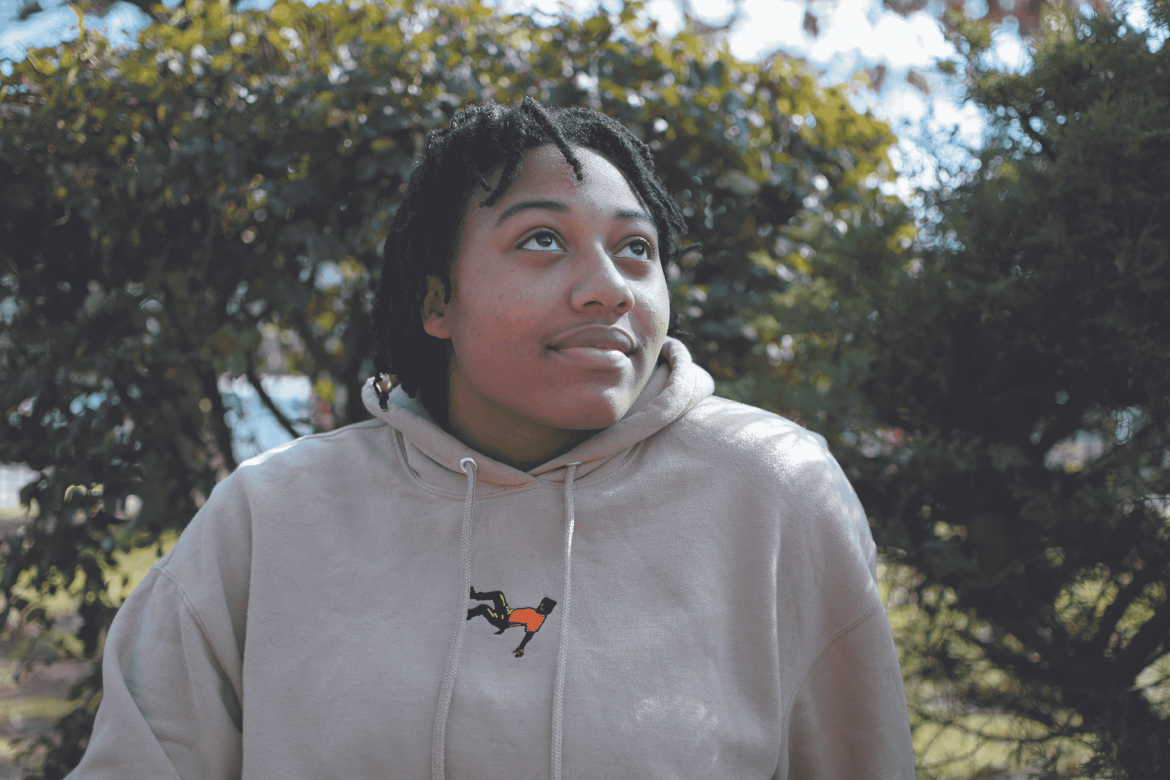Clarke Central High School junior Anaiah Aziabor looks up outside of the New Gym on Jan 30. Aziabor’s hair routine changes slightly each morning. “(My routine changes) depending on the morning and depending on how it looks before (I do anything). “Sometimes I’ll spritz it and shake it, and sometimes I’m just able to get up and go. It just really depends on how hard I slept.” Photo by Luna Reichert
The natural hair movement has changed a lot since the 1960s, and these changes have greatly affected African American women.
In recent months, there have been reported instances of discrimination against natural African American hair in sports, schools and workplaces across the nation.
In Mont Belvieu, Texas, a Barbers Hill High School senior, DeAndre Dean, was prohibited from attending his senior prom and graduation after refusing to cut his dreadlocks, which according to the “Barbers Hill ISD Student Handbook”, violated the student dress code. His hair was “gathered or worn in a style that would allow the hair to extend below the top of a t-shirt collar, below the eyebrows, or below the ear lobes when let down.”
Clarke Central High School junior Anaiah Aziabor says her older brother has also experienced discrimination due to his natural hair.
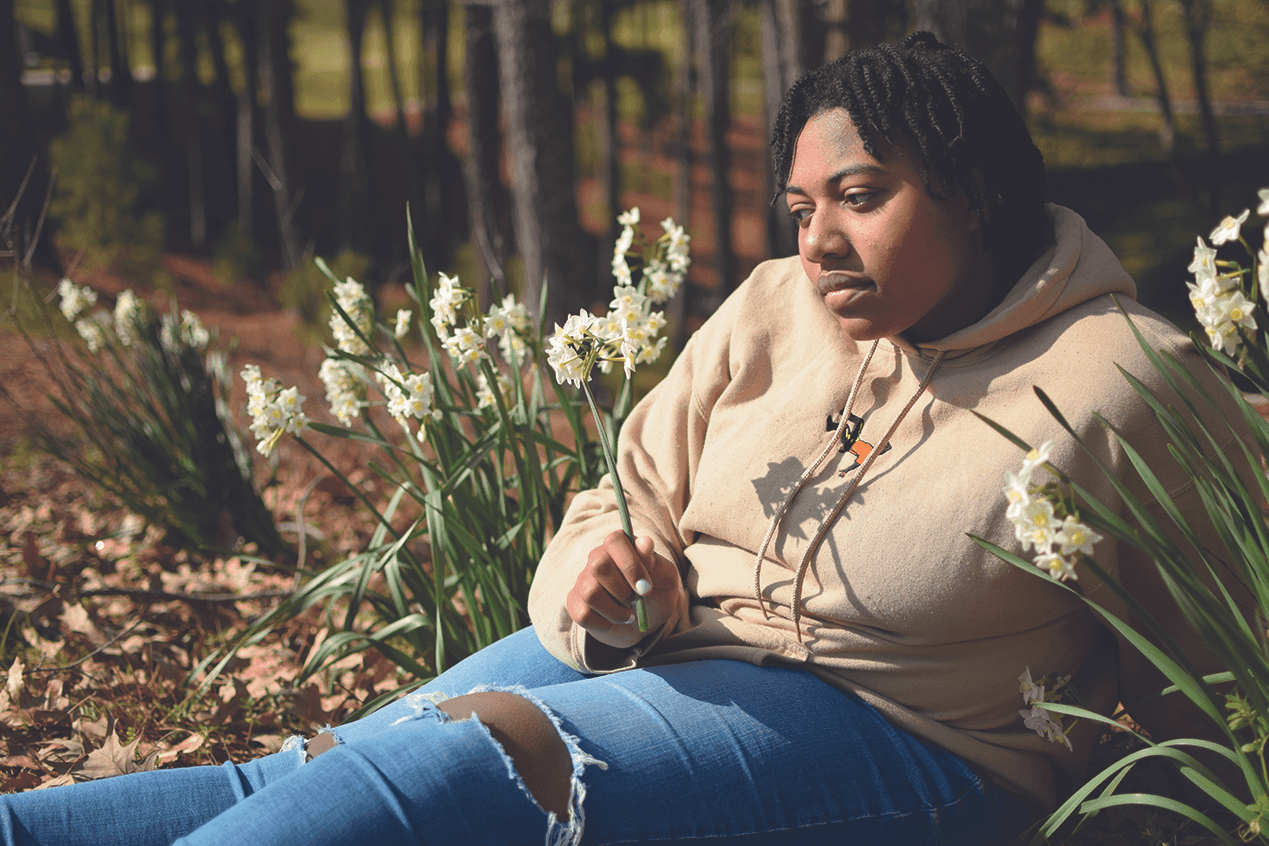
Clarke Central High School junior Anaiah Aziabor sits in the flowerbed outside of the New Gym on Jan 30. Aziabor has had a long journey to accepting her natural hair. “I feel more confident with my natural hair than I do with my hair straightened or any other style,” Aziabor said. Photo by Luna Reichert
“Before my older brother got dreads, he had this really big Afro. He would play soccer, and one of the (referees) claimed that his Afro was distracting other players or something,” Aziabor said. “(The referee) was like, ‘Either you don’t play or, the next time you do play, you have to cut your hair.’ My brother went to cut his hair, and (the referee) didn’t say anything after that.”
Local master cosmetologist Kara Waters, who has been a practitioner for 14 years, has seen her African American clients impacted by pressures to conform to Eurocentric standards.
“I have clients of all different ethnicities. I actually have seen it in lots of different situations. For brown people, especially, it is a big deal. But even for some of my clients who are not Black, who are White, if they have curly hair, they feel pressured to straighten (their hair) to feel like they fit in,” Waters said. “And it’s because the culture of America has been for so long that the closer to what we think (of ) as White is right, and the closer to non-White is wrong. It’s a problem.”
According to a 2015 BBC article by Rumeana Jahangir titled “How does Black hair reflect Black history?”, these pressures date back more than 155 years.
“During the 19th Century, slavery was abolished in much of the world, including the United States in 1865. However, many Black people felt pressure to fit in with mainstream white society and adjusted their hair accordingly,” Jahangir wrote.
The article goes on to state that, post-emancipation, various hair treatments emerged, such as hot combs and relaxers, to smooth their hair to fit the Eurocentric standard. For Waters, the sentiment of the article rings true.
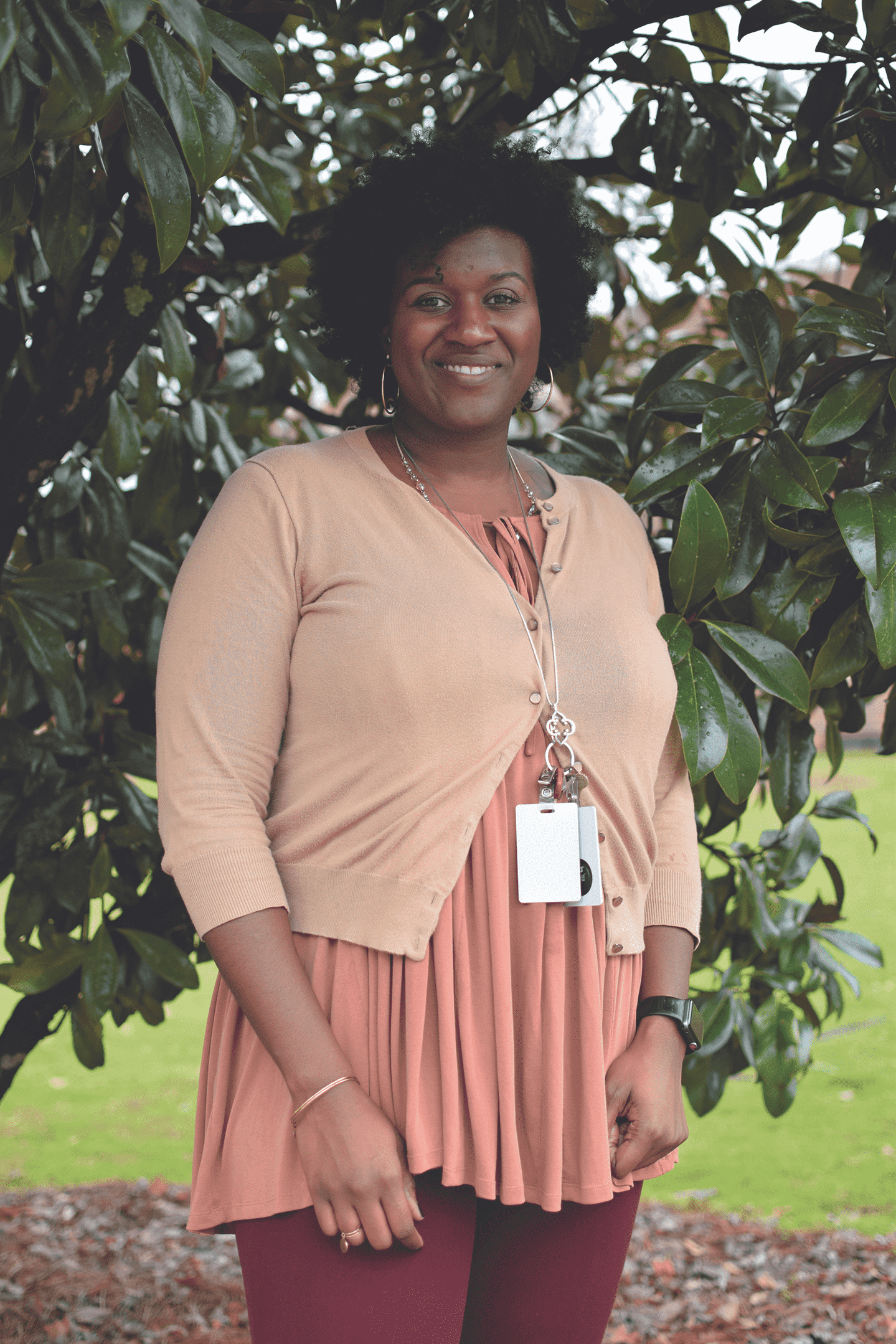
Clarke Central High School special education teacher Stacey Scott stands outside of CCHS on Jan 27. Scott appreciates the personal and cultural aspects of the movement to embrace natural hair. “I think (natural hair) is beautiful and great to express yourself to not only represent who you are, but your culture and your heritage,” Scott said. Photo by Luna Reichert
“There was a season before the “Black is Beautiful” movement (of the 1960s) where everybody’s trying to fit in and be accepted by White culture. And in order to do so, there was a way that it’s expected that your dress, your attire, the way that your hair looks(should be) the closest to White culture as possible,” Waters said.
According to an online historical exhibit called “Race and Ethnicity in Advertising” by Duke University, it wasn’t until the late 1960s when natural hair acceptance became popular, starting with the “Black is Beautiful” movement that encouraged African Americans to wear their natural hair in public. The exhibit further explains that it was at this time more natural Black hair care products emerged and hair product corporations wanted to appeal to the “soul” market.
“There were very few (natural haircare) products, and then the companies who (catered) to natural hair were also the companies who are also ironically doing the relaxer hair care products. Quite naturally, they moved into natural hair when they found out that it was catching on,” former owner of local Naughty by Nature hair salon and CCHS 2004 alumna Jerrica Kelley said.
However, natural hair care products are not always available or accessible. After graduating from CCHS in 2003, CCHS special education teacher Stacey Scott moved to North Carolina for college and found she had limited access to hairstylists or hair care products.
“I went to school in Greenville, North Carolina, so there wasn’t a big natural hair movement. I would probably have to drive 20 minutes to get to Sally’s (Beauty Supply Store),” Scott said. “Even finding a beautician that could do my hair or felt comfortable doing my hair was difficult.”
For CCHS sophomore V’shaunah Bradford, adequate access to natural hair products remains limited.
“I don’t think there’s a lot (of access to natural hair products). It’s definitely better than it was, but there’s still only a select few (products) that (are) actually meant for our hair texture,” Bradford said.
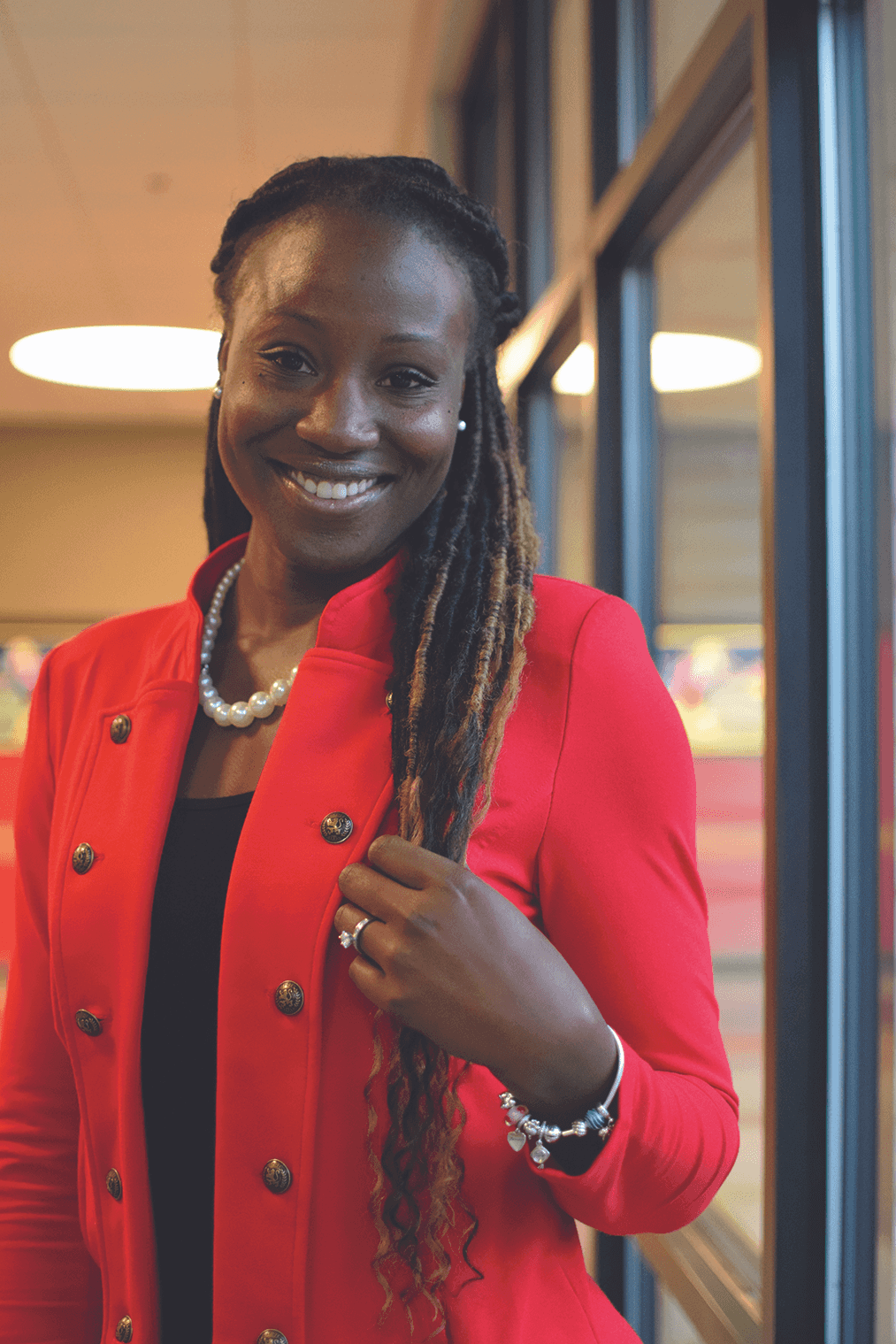
Clarke Central High School guidance counselor Ashlee Perry stands in Mell Lobby on Jan 27. Perry loves her dreads and feels they have made her love her natural hair. “I just have to continue to encourage myself to love (my locs) the way that they are and just to trust the process,” said Perry. Photo by Luna Reichert
However, Scott believes the evolution of the most recent natural hair movement is beneficial for those pursuing natural styles today.
“I think (acceptance of natural hair) is so beneficial. In the Black hair movement, there’s no norm. It’s (not just) trendy now. It’s in the mainstream. You can find Black hair products in Target, Walmart (or) Ulta beauty, and it’s not for just one type of Black hair,” Scott said.
Along with inconsistent access to natural hair care products, many African-Americans often endure negative stigmas and comments about their natural hair. When CCHS school counselor Dr. Ashlee Perry was growing up, she experienced negative attention from peers about her hair.
“I got picked on often because my hair was more kinky or nappy, as (it) used to be called. I spent hours trying to find ways to get it styled,” Perry said.
Aziabor says she also received ridicule from classmates, which made finding love for her hair difficult.
“When I was younger, like in preschool, there was this group of girls who would make fun of me because my hair was shorter. It was just a really big shrinkage thing,” Aziabor said. “They would always wear ponytails, and they were like, ‘Oh, you can’t do this.’”
While there are those at CCHS who have had difficulties embracing their natural hair, CCHS freshman McKenna Ezekiel feels hair-acceptance has not been a challenge.
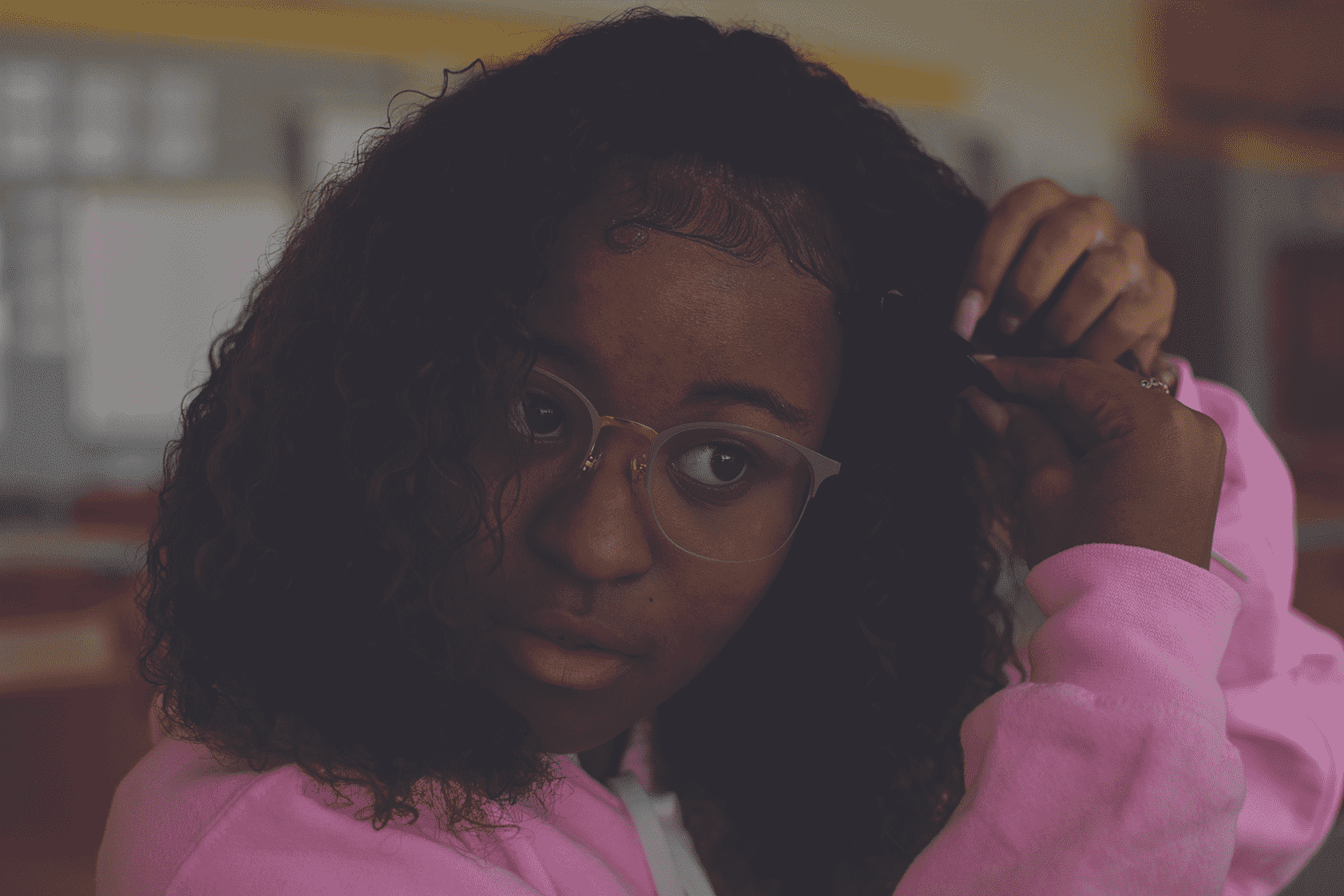
Clarke Central High School freshman McKenna Ezekiel sits at a table and does her hair on Jan. 27. Ezekiel believes her journey with hair has been positive. “I feel like it is really important for people to embrace their natural hair. Especially women of color,” Ezekiel said. Photo by Luna Reichert
“I love my hair how it is, and I feel like if anybody else doesn’t love my hair how it is, they don’t need to worry about it,” Ezekiel said.
Currently, government action is taking place to protect those who choose to wear their hair naturally. On July 3, 2019, California Governor Gavin Newsom signed SB 188 into law. This made California the first state in the United States to outlaw racial discrimination based on hairstyle. This bill protects those in the workplace, K-12 public schools and sporting events from policies that discriminate against their natural hair.
States like New York, New Jersey, Michigan, Wisconsin, Illinois, Maryland and Kentucky, along with communities such as Cincinnati, Ohio and Montgomery County, Maryland have passed similar legislation. But there are still states, including Georgia, that have not followed suit.
Even with progress in certain states’ legislation, Perry believes it is important for students to have self-acceptance of their natural hair.
Perry believes it is important for all girls to believe in the beauty of their natural hair.
“If there are any (girls who aren’t confident in their natural hair) here, have them come talk to me. I think that’s something I would’ve really appreciated in high school,” Perry said. “Just having someone talk about their journey, in terms of not loving who they were.”
Clarke Central High School students and staff talk about the different aspects of their natural black hair.
Story by Samaiyah Ra’aid
Story by Naomi Hendershot
Video by Colin Frick
Package by Ireland McCage
